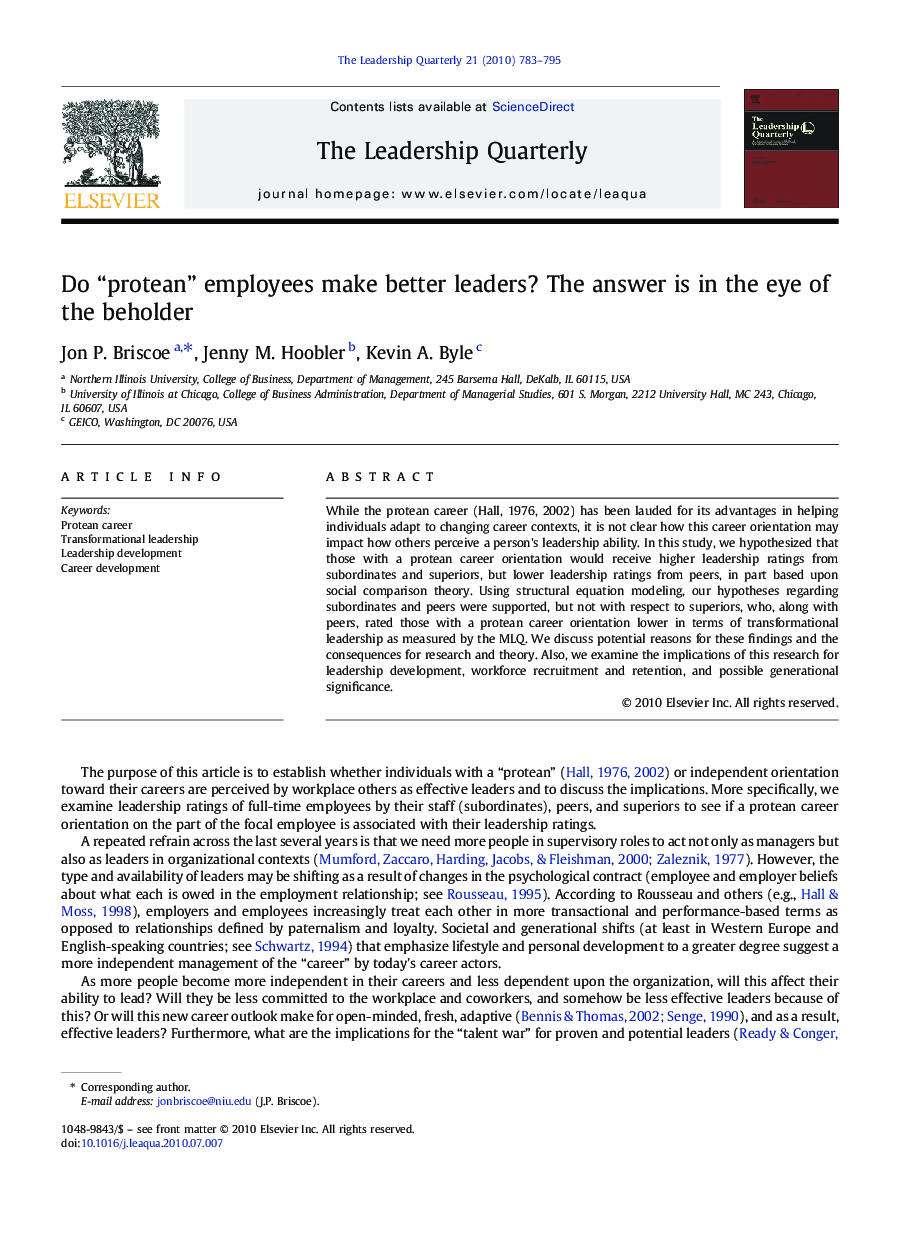| Article ID | Journal | Published Year | Pages | File Type |
|---|---|---|---|---|
| 888056 | The Leadership Quarterly | 2010 | 13 Pages |
While the protean career (Hall, 1976, 2002) has been lauded for its advantages in helping individuals adapt to changing career contexts, it is not clear how this career orientation may impact how others perceive a person's leadership ability. In this study, we hypothesized that those with a protean career orientation would receive higher leadership ratings from subordinates and superiors, but lower leadership ratings from peers, in part based upon social comparison theory. Using structural equation modeling, our hypotheses regarding subordinates and peers were supported, but not with respect to superiors, who, along with peers, rated those with a protean career orientation lower in terms of transformational leadership as measured by the MLQ. We discuss potential reasons for these findings and the consequences for research and theory. Also, we examine the implications of this research for leadership development, workforce recruitment and retention, and possible generational significance.
